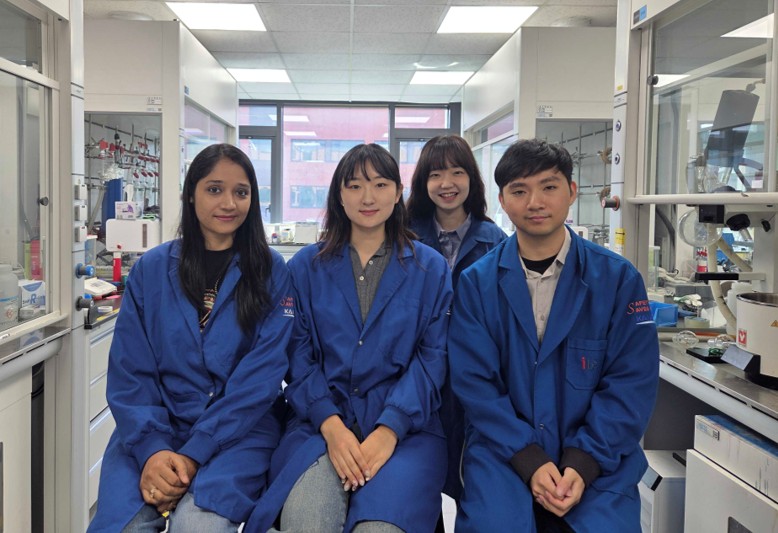
In a groundbreaking achievement, Korean researchers have synthesized a new artificial enzyme by combining vitamin B2 (riboflavin) with metal ions. This innovative development, led by Professor Yunjung Baek from the KAIST Department of Chemistry in collaboration with Dr. Seongyeon Kwon of the Institute for Basic Science, was announced on November 11. The novel enzyme is expected to outperform natural enzymes in precision and stability, with potential applications in energy production, environmental purification, and drug development.
The research team successfully overcame the longstanding challenge of binding flavin, a component of riboflavin, with metal ions. Flavin’s complex ring structure, intertwined with nitrogen and oxygen, has historically hindered selective metal binding. By designing a specific binding site at the molecular level and employing a metallochemical approach, the team was able to synthesize a stable flavin-metal complex, thus integrating flavin’s electron-transfer capabilities with the metal’s reactive properties.
Scientific Innovation and Methodology
The creation of this artificial enzyme marks the first instance of combining flavin’s inherent properties with the reactivity of metals into a single, cohesive system. This breakthrough opens the door to developing ‘metal-based artificial enzymes’ that can finely tune chemical reactions. Professor Baek emphasized the significance of this research, stating, “We have moved beyond the limitations of naturally occurring flavin and expanded a biomolecule into a new component of metallochemistry.”
The achievement, which includes contributions from Dr. Neetu Singh and Ph.D. candidate Haneul Im as co-first authors, was published in the international journal Inorganic Chemistry by the American Chemical Society (ACS) on November 5. The paper was not only featured as the cover article but also selected as an ACS Editors’ Choice, highlighting its importance and creativity.
Implications for Future Research and Industry
The implications of this research are profound, suggesting new directions for designing next-generation catalysts and energy conversion materials based on biomolecules. The ability to precisely control chemical reactions could revolutionize industries reliant on catalysts, including pharmaceuticals and renewable energy.
The research was supported by the ‘Excellent New Researcher’ project under the Basic Research Program for Individuals funded by the Ministry of Science and ICT, alongside the ‘Materials and Components Development Program’ backed by the Ministry of Trade, Industry and Energy. This support underscores the strategic importance of advancing scientific innovation in Korea.
Global Recognition and Future Prospects
The international recognition of this research, as evidenced by its selection as an ACS Editors’ Choice, positions it as a pivotal contribution to the field of inorganic chemistry. The study’s authors, including Neetu Singh, Haneul Im, Seongyeon Kwon, Dongwook Kim, and Yunjung Baek, have set a new benchmark for the synthesis of artificial enzymes.
Looking forward, the potential applications of this technology are vast. In the realm of environmental protection, these artificial enzymes could enhance the efficiency of processes such as waste decomposition and pollutant neutralization. In energy production, they could lead to more sustainable and efficient methods of generating power.
As the world grapples with environmental challenges and the need for sustainable energy solutions, innovations like this artificial enzyme offer promising avenues for progress. The research community and industry stakeholders will undoubtedly be watching closely as this technology develops and its applications expand.
In conclusion, the successful synthesis of a flavin-metal complex not only represents a significant scientific achievement but also a potential catalyst for change across multiple sectors. The journey from laboratory to real-world application will be crucial in determining the full impact of this breakthrough on society and the environment.







